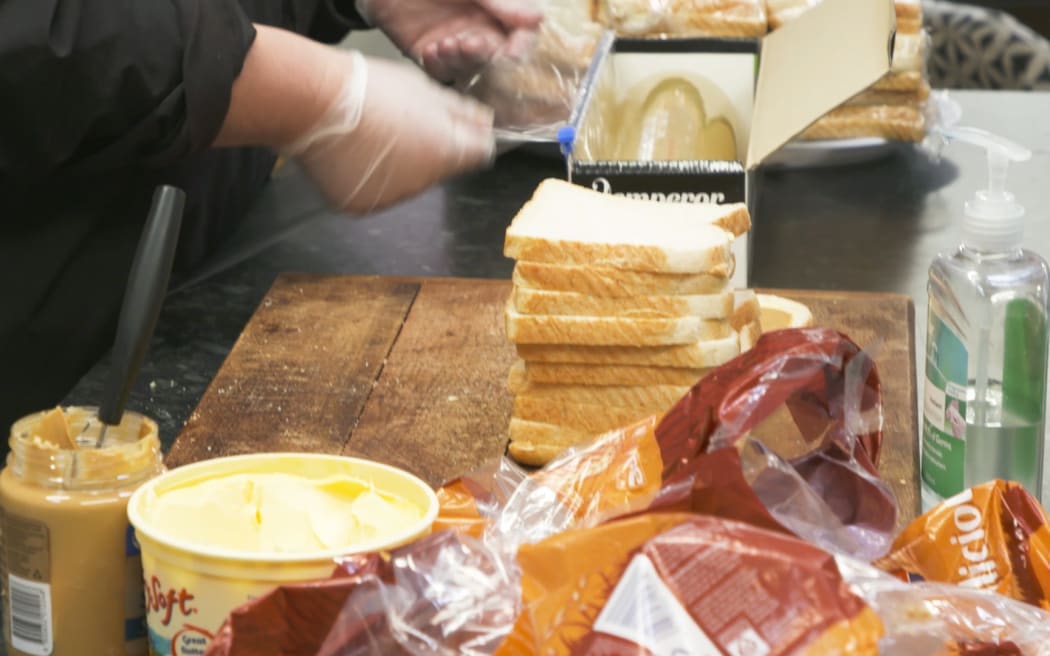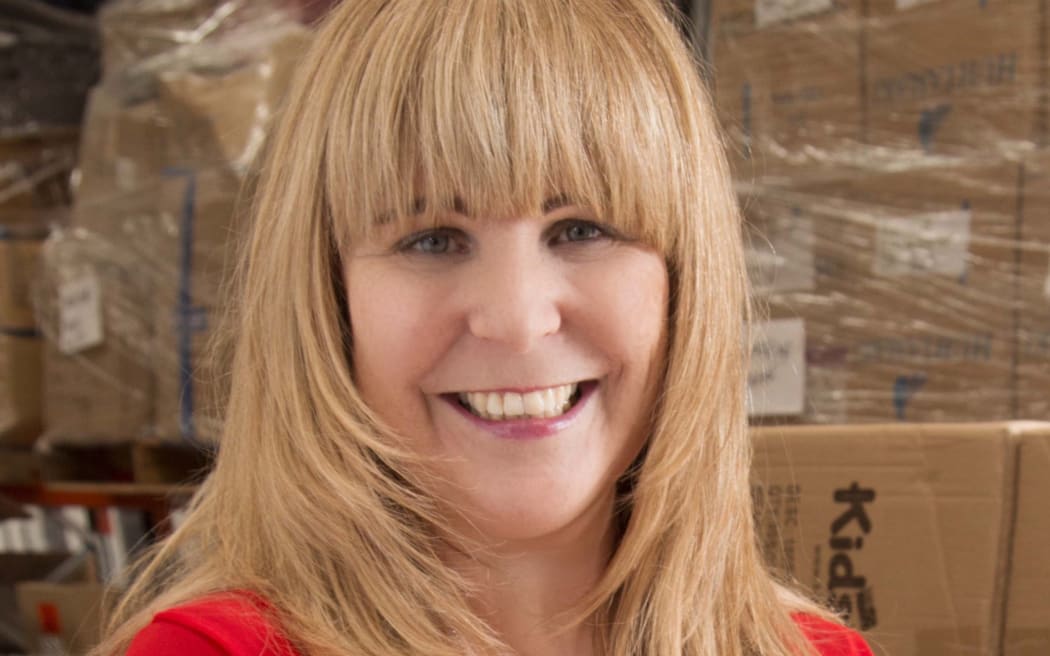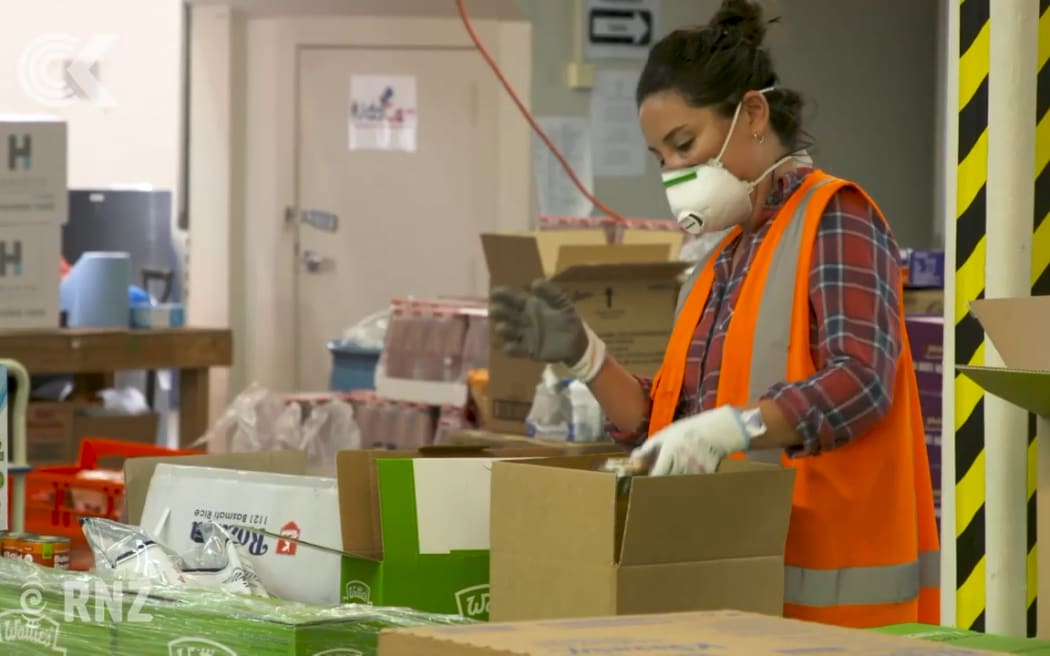
Charity organisation KidsCan is calling for donors as it battles to keep up with rising food costs. File photo. Photo: RNZ / Nick Monro
With 10,000 more children to feed in 2022 and fewer donors, the charity KidsCan says it is nervous about what the new year will bring.
The charity, which currently feeds 49,000 children a day, has seen not only a significant drop in donors but a lack of new people in a position to help the tamariki.
KidsCan founder and chief executive Julie Chapman says high inflation and spiralling costs have taken a hold of the charity's ability to help.
"Our own costs have gone up and we faced a bit of a drop in monthly donors to support kids, so we really had to dig in to make sure we could help those kids that need that extra help," Chapman said.
Although a drop in donors was always expected, a reduction on the number of new applicants hit the charity hard in 2022, she said.
"We lose about 13 percent of our donors every year for a lot of different reasons, but we always have new people signing up, which helps bridge that gap."
This year they had more donors cancelling because they were affected by the cost of living, she said.
"And we are finding it harder for people to make that commitment to donate monthly because even those that could afford it are now impacted by the high costs. It's the worse we have seen in 17 years."
She said with more mouths to feed and less new donors, the charity was unsure how the next year would look.
"We are still a bit behind on where we want to be for 2022 and we do feel nervous about 2023 because we still need people to sign up monthly to support children."
The challenge for the charity was to sustain what they did in schools and they would need people's help to achieve this, Chapman said.

KidsCan chief executive Julie Chapman. File photo. Photo: Supplied / KidsCan
With almost 900 schools to support nation-wide, KidsCan has another 60 centres on a waiting list.
"We are looking at expanding our support for early childhood centres, particularly into rural areas that are harder to reach," Chapman said.
She said for vulnerable families, school meals were crucial.
"For many families that were just getting by, that little bit of extra support at school with food items it's helping to make a difference when their budget is just so stretch, and they are having to make really difficult choices everyday about where to put their money."
From all the bills they had to manage, it was always the food budget that shrunk, she said.
"So, we know more than ever for some kids our food is their main source of nutrition."
According to Stats NZ, when a household is in material hardship, it could mean going without things like fresh fruit and veggies or avoiding using the heater in winter to save money.
In the year ended June 2021, 11 percent of children (125,700) experienced material hardship.
The number was even higher in Māori tamariki with more than one-in-five children (60,300) experiencing material hardship.

KidsCan workers fill boxes to deliver to families in need under lockdown. File photo. Photo: RNZ / Nick Monro
Chapman said the charity was counting on new donors to help reach more vulnerable tamariki.
"New Zealanders are really generous and even though is going to be tough for everybody, my hope is that people that are able to afford to help us would do that."
In 2023 they would need our donors more than ever and the children need support more than ever, she said.
"So, if you can afford to sign up with 15 dollars, that will make a huge impact in the life of children in what will be a very tough year economically."
"Hardest year for us" - Feed The Need
The charity Feed the Need helps provide for kids all over New Zealand, including support for rangatahi who are leaving foster care.
Chairperson Derek Good said 2022 had been one of the most difficult for the organisation.
"Our donations have definitely dropped off this year.
"We have a bit of a surplus from the year before, so we managed, but this is probably being the hardest year for us," he said.
Good said the shortage in donations was across the board.
"It's all donations, from every corner that we normally get them from. It's just not from personal donations, but also from companies."
They still received some donations in but it was a smaller amount than before, Good said.
"Even companies are tightening their belts as well, but we are grateful for those who put a monthly donation, it all helps."
Good said high inflation had impacted the charity's budget.
"We do price up these lunch packs we put together in an annual basis and we have seen a rise on these packs in about 15 percent."
He said everybody was feeling the pinch.
"I think people want to do what they can to help other but, like anything, you start to look inwards when things are getting tighter."
Good said the charity was liaising with companies to provide additional funds.
"We do have enough to at least meet some of our goals to 2023 with the carryover we had from the past two previous years, but we need to be careful on how we use it."
He said there were many ways to get involved and help those in need.
"I know people want to help, they just don't often have the money but if they don't have the money, but they have the time, they can organise them to come and assist with packing, for example."
Every little bit helped, Good said.


